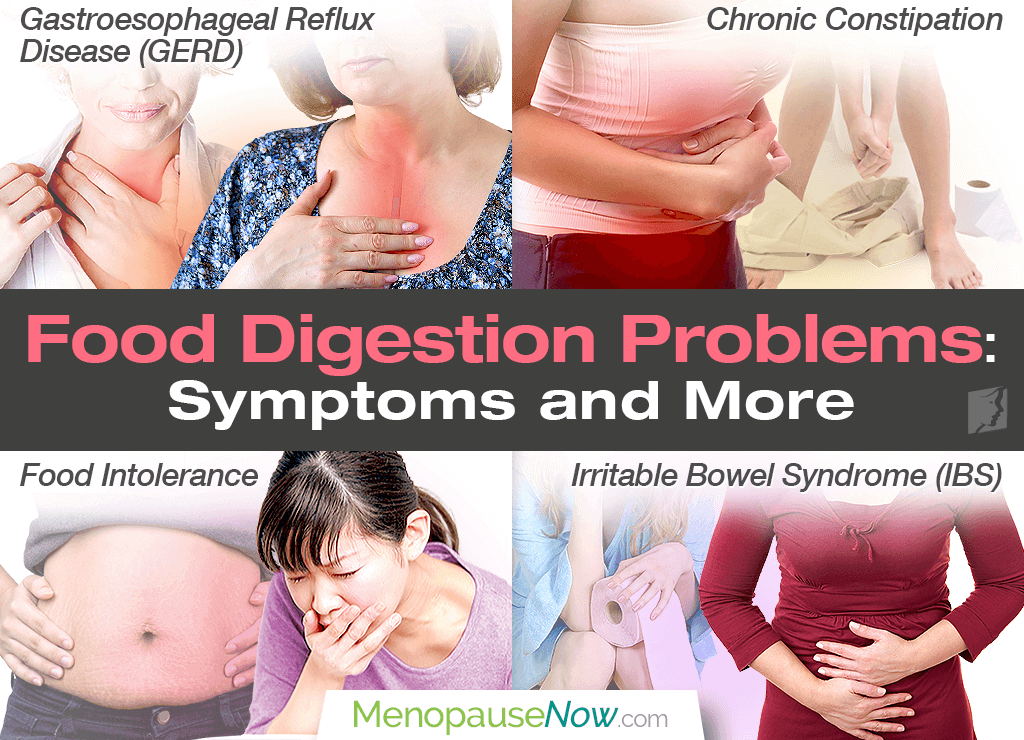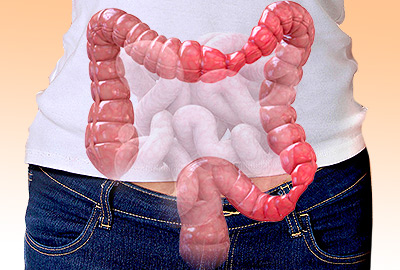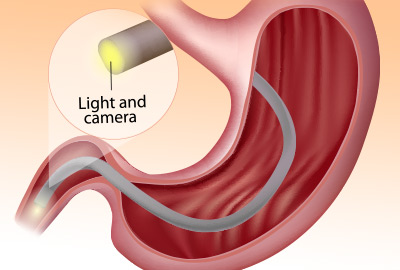Digestive problems bring menopausal women not only a list of unwanted symptoms, but also more serious and chronic illnesses if not attended to promptly.
Continue reading about symptoms of four common food digestion problems and more as well as how you can ultimately treat them for good.
Four Common Digestion Problems:
Gastroesophageal Reflux Disease (GERD)
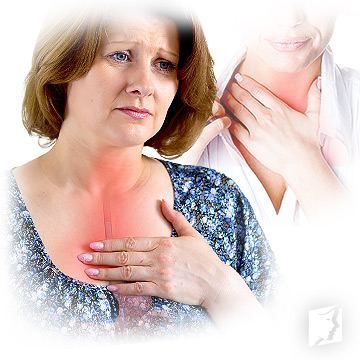
GERD occurs when stomach acid flows back into the esophagus on a frequent basis. This acid reflux irritates the lining of the esophagus.
Symptoms of regurgitation of food or sour liquid, sensation of a lump in your throat, heartburn, chest pain, difficulty swallowing, chronic cough, disrupted sleep
What to do. GERD can usually be resolved with lifestyle changes and over-the-counter medications if necessary.
Chronic Constipation
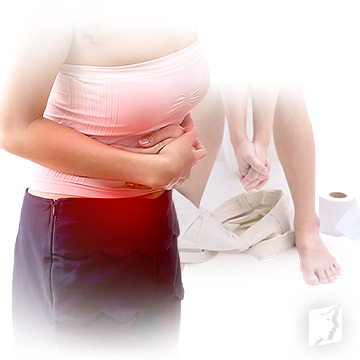
Chronic constipation is caused when the colon improperly moves food through the digestive tract, causing infrequent bowel movements.
Symptoms of abdominal bloating, pain, and more painful and fewer bowel movements
What to do. Consume sufficient amounts of fiber and water alongside regular exercise to improve peristalsis.
Food Intolerance
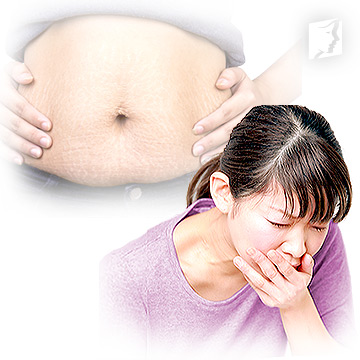
Food intolerances are when your digestive system cannot handle certain foods. Unlike food allergies, intolerances only cause digestion issues.
Symptoms include gas, vomiting, heartburn, headaches, diarrhea, bloating, cramps; usually occur a few hours after consumption
What to do. Keep track of what you eat in a diary to properly identify triggers. (Wheat products are a common food intolerance in many people.)
Irritable Bowel Syndrome (IBS)
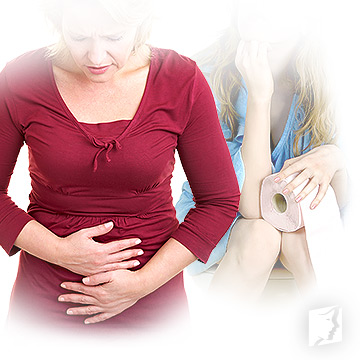
IBS is a common food digestion problem that affects the large intestine. It requires long-term management.
Symptoms include gas, diarrhea, constipation, abdominal pain, bloating, cramping
What to do. Consume ample amounts of probiotics and relieve stress with cognitive-behavioral therapy or other alternative methods.
Key Takeaways
While GERD, chronic constipation, food intolerances, and IBS all have their respective symptoms and management options, menopausal women suffering from them will only find ultimate relief once they confront the underlying cause behind their bad digestion, hormonal imbalance. Digestive problem treatments revolve around natural and effective methods proven to promote gastrointestinal health and overall well-being. Check them out to finally start living with digestive stability!
Sources
- Kim, Y.S. et al. (2014). Aerobic exercise improves gastrointestinal motility in psychiatric inpatients. World Journal of Gastroenterology, 20(30), 10577-10584. doi: 10.3748/wjg.v20.i30.10577
- Mayo Clinic. (2018). Gastroesophageal reflux disease (GERD): Symptoms & causes | Irritable bowel syndrome: Causes & symptoms. Retrieved February 5, 2019, from https://www.mayoclinic.org/diseases-conditions/gerd/symptoms-causes/syc-20361940 | https://www.mayoclinic.org/diseases-conditions/irritable-bowel-syndrome/symptoms-causes/syc-20360016
- NHS. (2016). Food intolerance. Retrieved February 5, 2019, from https://www.nhs.uk/conditions/food-intolerance/

